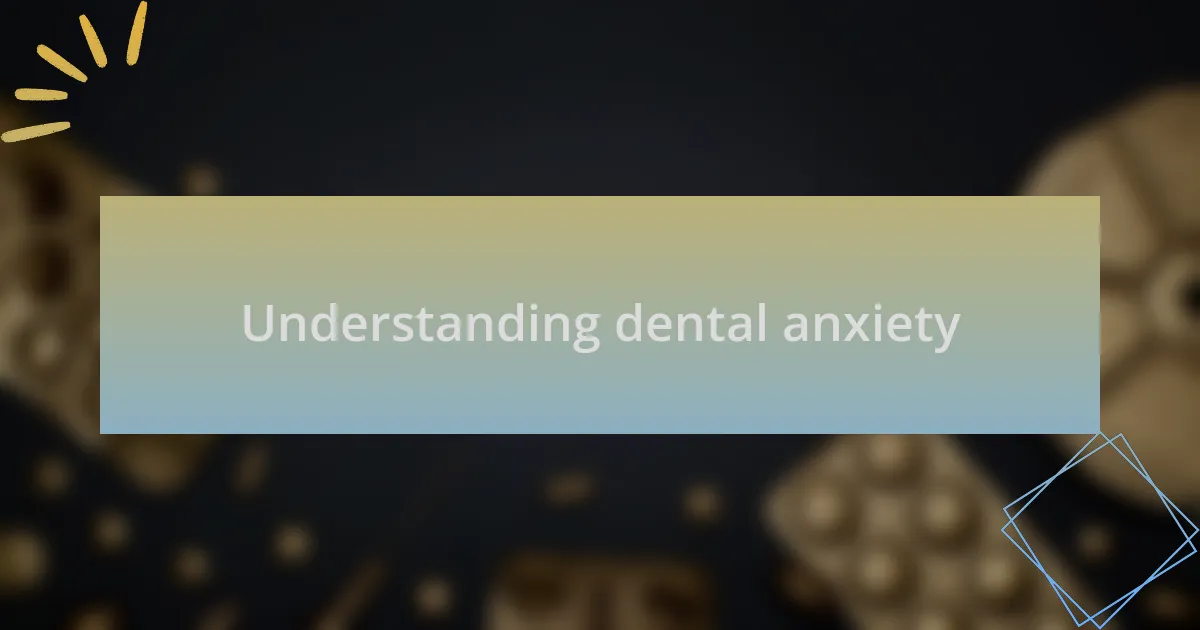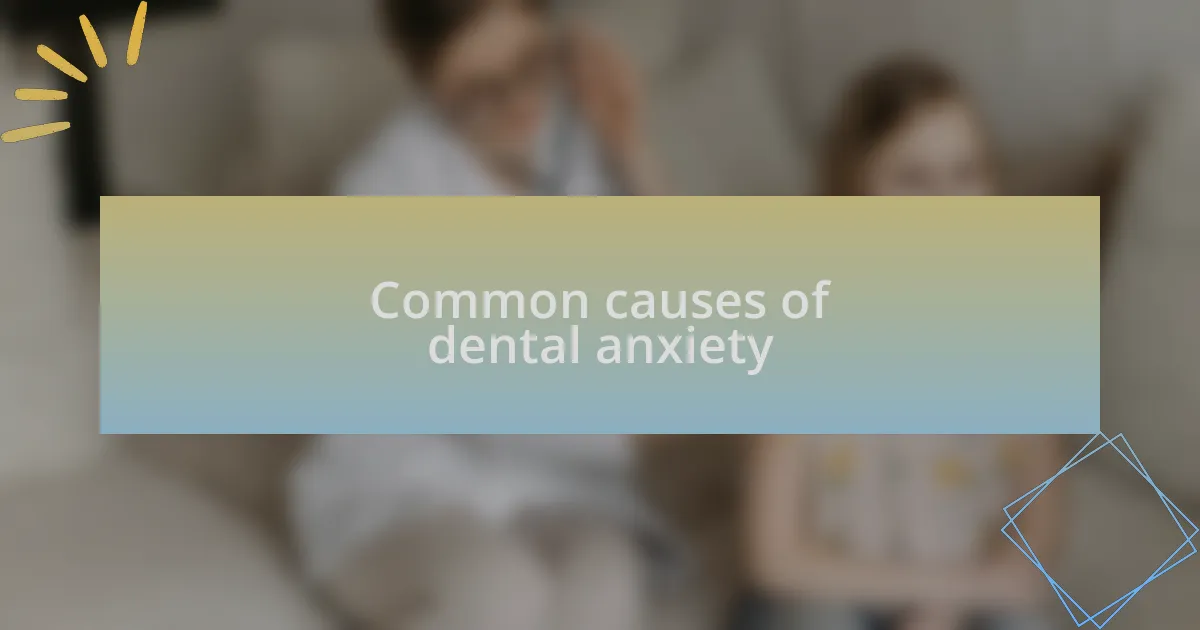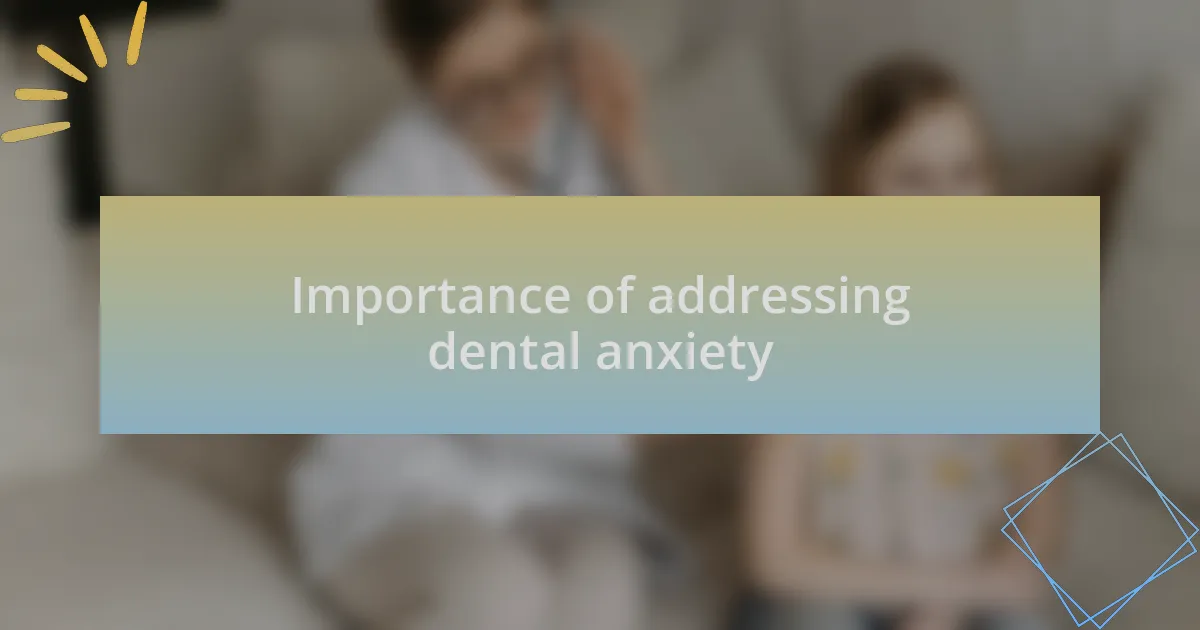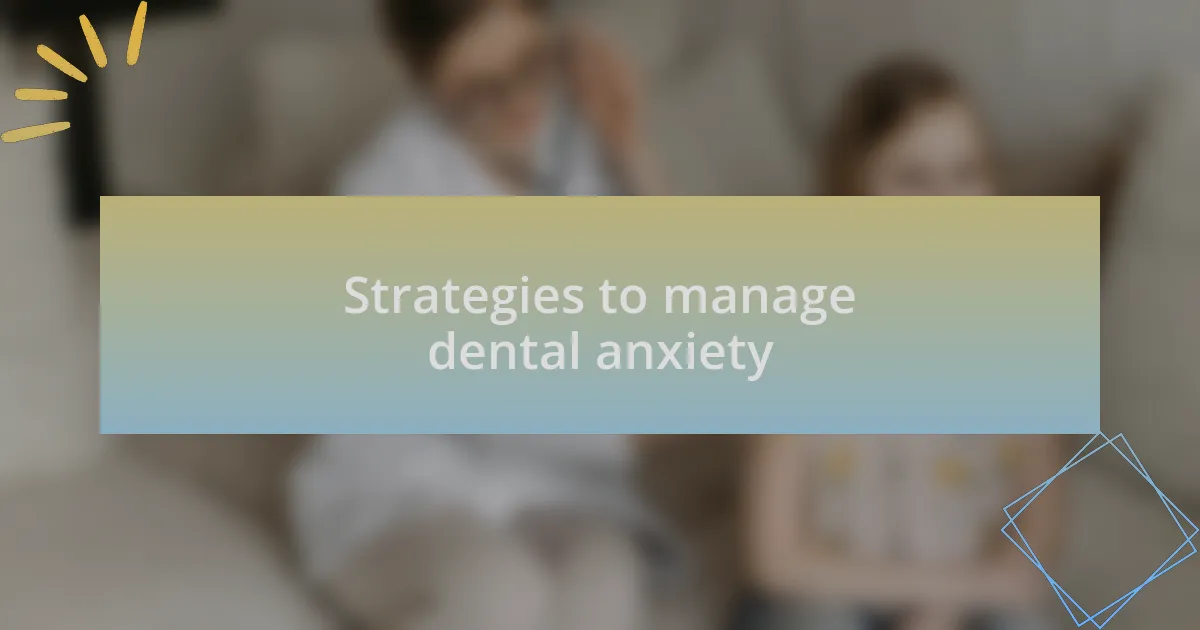Key takeaways:
- Dental anxiety is a common issue often rooted in past negative experiences and heightened by environmental factors like clinical settings and fear of pain.
- Addressing dental anxiety is crucial for maintaining oral health and can lead to improved communication with dental professionals, fostering a more comfortable experience.
- Effective strategies to manage dental anxiety include deep breathing techniques, distractions such as music or podcasts, and establishing a communication signal with the dentist.

Understanding dental anxiety
Dental anxiety is a common, yet often misunderstood, issue that many people face. I remember my first dental appointment; the sterile smell and the sound of the drill instantly sent my heart racing. Have you ever felt that intense knot in your stomach just at the thought of sitting in that chair?
For some, anxiety stems from past negative experiences. I once spoke with a friend who had a traumatic dental procedure in childhood. She carried that fear into adulthood, avoiding the dentist at all costs. It makes me wonder how many of us hold onto these early experiences, letting them dictate our current feelings about dental care.
The physical sensations of anxiety can be just as powerful as the emotional ones. I often found that as soon as I walked through the clinic doors, my palms would sweat and my heart would pound. Isn’t it intriguing how our bodies can react so strongly to an environment that is meant to help us? Understanding that this anxiety is a natural reaction is the first step toward overcoming it.

Common causes of dental anxiety
It’s interesting to realize how much our environment can impact our feelings about dental visits. The stark, clinical atmosphere in dental offices often triggers anxiety in patients. I remember walking into a dentist’s office with stark white walls and bright lights that felt too harsh, making me feel uneasy even before sitting down. How can a place designed for care evoke such discomfort?
Another significant cause of dental anxiety is the fear of pain or discomfort. I recall a time I hesitated before a routine cleaning, worried that it might hurt. Many people, like I did, often imagine the worst scenarios from small procedures. Isn’t it fascinating how our minds tend to amplify those fears, creating barriers to necessary oral health care?
Lastly, the lack of control during dental treatments can also heighten anxiety. I once had a dental procedure where I felt completely vulnerable, unable to communicate my discomfort while my dentist worked away. That sense of helplessness can be overwhelming, leading many to avoid the dentist altogether. How many of us have walked out of a clinic feeling more anxious than before?

Importance of addressing dental anxiety
Addressing dental anxiety is crucial for maintaining overall oral health. I remember putting off a necessary root canal solely because of my fear of the procedure. The longer I delayed, the more complicated the issue became. Have you ever found yourself in a similar situation, postponing visits and letting anxiety dictate your dental health?
When we confront dental anxiety, we open the door to effective communication with our dental team. I learned that discussing my fears with my dentist transformed my experience. By sharing how I felt, I received reassurance and personalized care that truly eased my nerves. How liberating is it to realize that our voices can foster a more comfortable environment?
Ultimately, overcoming dental anxiety encourages proactive health behaviors. Once I faced my fear and attended regular appointments, it empowered me to take charge of my dental care. Isn’t it inspiring to think that tackling this anxiety can lead to healthier choices in our lives? Each small victory in addressing these fears can lead to long-lasting benefits for our smile and well-being.

Strategies to manage dental anxiety
One effective strategy I found was to practice deep breathing techniques before and during my dental appointments. The first time I tried it, I was surprised by how a few slow, deep breaths helped me regain control and calm my racing heart. Have you ever noticed how something as simple as breathing can anchor you in stressful moments?
Another approach that worked wonders for me was to bring a distraction along, like a pair of headphones with my favorite podcast. Focusing on an engaging conversation redirected my thoughts from the procedure itself. It made me wonder—could it be that we have more power over our anxieties than we realize, just by redirecting our thoughts?
Finally, creating a signal with my dentist, like raising my hand, helped alleviate my fear of feeling trapped during the appointment. It was comforting to know I could communicate my discomfort at any time. This experience taught me that small changes can make a big difference in how we manage anxiety. How could a simple gesture like this change your own dental experience?